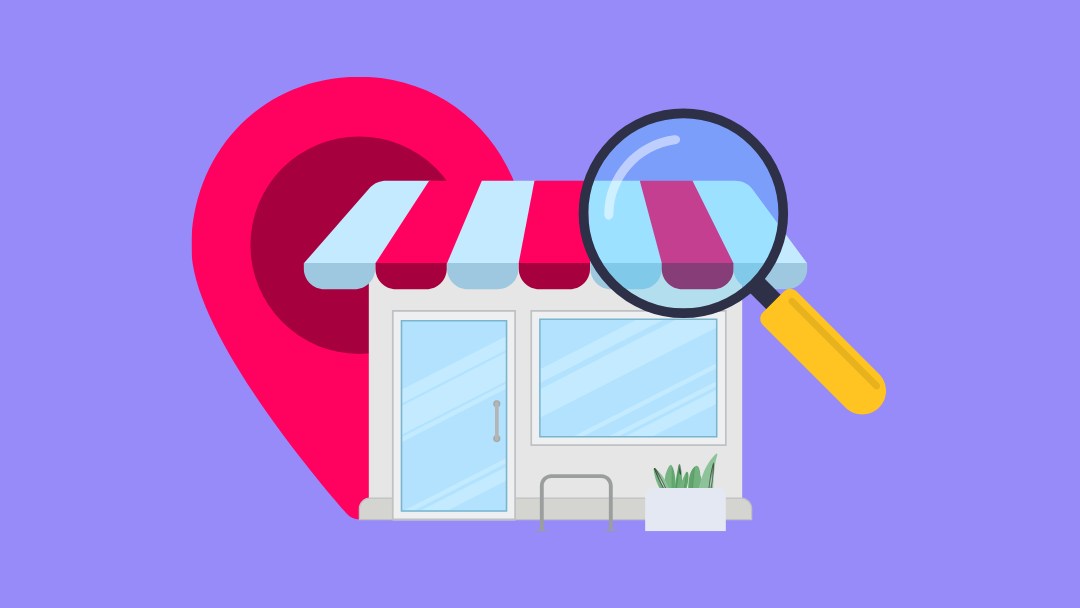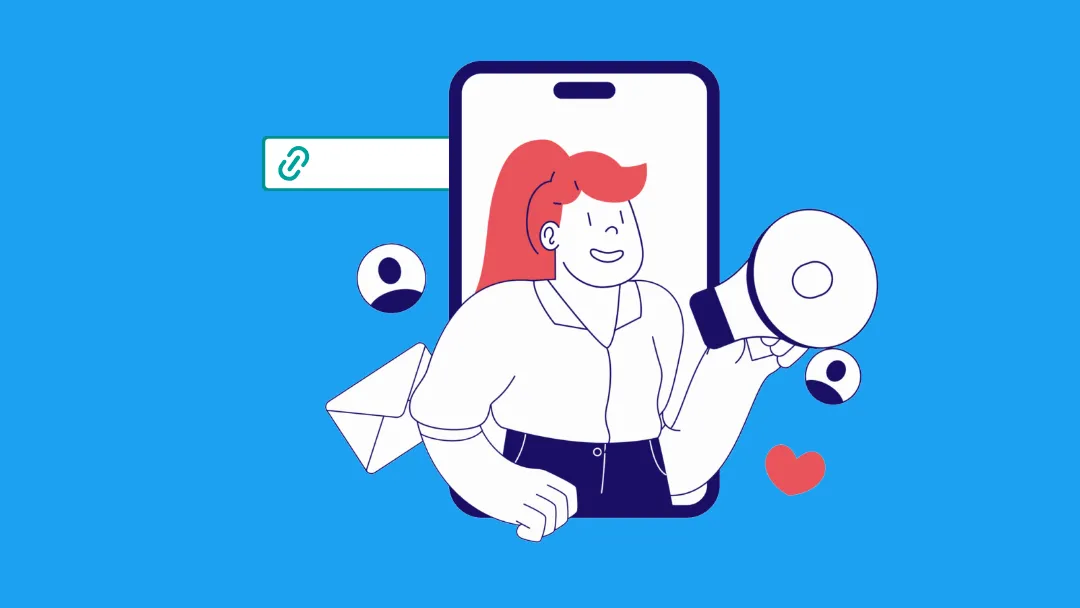Only On-page SEO is not enough. You also need to optimize the website using Off-Page SEO techniques to improve the website's overall SEO quality. In this article, I will discuss what off-page SEO is and how to optimize it with Off-Page SEO Techniques.
What is Off-Page SEO?
Off-page SEO is an SEO optimization step that is done outside of content or website. If On-page SEO, you only dwell on the website's internal SEO factors. Off-page SEO demands you to optimize it from external factors. The external factors referred to here are from inbound links/backlinks to share on social media. One of the most common off-page SEO misconceptions is that off-page SEO only addresses link building. Whereas off-page SEO is much wider than that. Link building is indeed the essential factor in off-page SEO, but not the only one. There are various steps of off-page SEO techniques, and we'll explain each one in full below.
8 Off-Page SEO Techniques
- Link Building
- Business Listings
- Brand Mention in Online Media
- Google My Business
- Reviews
- Share on Social Media
- Infographic Submission
1. Link Building
Speaking of off-page SEO can never be separated from link building. Link building is the most critical off-page SEO technique. Why are links the essential factor in off-page SEO? Because Google uses an algorithm called Page Rank, Page Rank is an algorithm that assesses the quantity and quality of backlinks on a website. Some SEO professionals say The Page Rank is out of date. However, Google confirms that Page Rank is still a factor in Google's valuation. Reports from Ahrefs also prove there is a strong link between the number of inbound links/backlinks of a website to its performance in search results. The graph above shows that the more referring a domain, the better it is for organic traffic. Referring domains are domains that provide inbound links/backlinks to a website. Therefore, you need to get quality backlinks/inbound links to strengthen your website's off-page SEO. You can use free backlink checker tools to analyze your link-building strategy. Well, in doing link building, what are the factors that you need to pay attention to? There are 5 factors to consider. Here's the explanation:
Page Authority and Domain Authority
Each link has a different quality. The quality of the links from website A is different from the links from website B. Even the links from page 1 on website A and page 2 on website A also have different qualities. The quality of these links is measured by the Domain Authority and Page Authority scale. Domain Authority is the quality of a backlink profile in an overall domain. Domain Authority is measured on a scale of 1 to 100. The higher the number, the better the quality of links from the domain. On the other hand, Page Authority is the quality of links on a particular page. Page Authority is calculated on a scale of 1 to 100. The higher the number, the better the quality of the links provided by the page. Then how do I find out the DA and PA of a website? You need to use a website like Moz or Ahrefs to know the link quality of a website. Moz and Ahrefs are both paid apps, so you'll need to spend a small fee to use them. The cheapest package price is 99 US Dollars per month. That said, you can use the trial version of Moz. With the trial version, you have the opportunity to check the link quality up to 10 times. Ahrefs also provides a 7-days trial version priced at 7 US Dollars. We tried using the trial versions of Moz and Ahrefs to check the website pages' authority quality. Here's the result:

Ur and dr: ahrefs
Here's DA-PA by Moz:

Moz: DA-PA
Ahrefs uses different metric names: URL Rating (UR) and Domain Rating (DR). However, the way it works is almost the same as DA and PA. UR measures the quality of links on a specific page, while DR serves to measure the quality of links in the domain as a whole. Well, when going to guest post or cooperate with website owners, you need to consider the quality of their UR/PA and DA/DR. That way, you can build quality links for your website.
Dofollow and Nofollow Links
Google detects not all links. Google only detects do-follow links. What is dofollow links? Dofollow is a link detected by Google bots so that it can improve the authority of a website. By default, links on a website are usually set as dofollow. Instead, nofollow links are accompanied by nofollow tags that signal Google not to detect such links. So nofollow links will not affect the quality of your website authority. How do I know which dofollow links and where are the nofollow links? It's pretty easy. All you have to do is install the NoFollow Chrome extension . This Chrome extension will highlight nofollow links. Then which type of link is suitable for your website? Actually, it depends on your goals. If your goal is to increase the website's authority, you should try to get dofollow cooperation links. It's different if your focus is just traffic. Nofollow links still contribute to your website, which is traffic. However, nofollow links will not have any effect on the quality of the website authority.
Anchor text
Anchor text is text containing links that website visitors can click on. Google states one of the factors affecting search quality is anchor text. Links with the exact same anchor text as the targeted keywords result in better search quality than those that don't. You can't always control anchor text on other website links unless you ask the website owner specifically for it. That said, you also need to be careful. Because too many inbound links/backlinks with the exact same anchor text can result in Google penalties .
Relevance
Relevance is also an essential factor that you should pay attention to when building backlinks. Try to get backlinks from a website that is still one niche with your website. For example, your website is in the culinary niche, so you should get backlinks from websites that discuss similar themes. So are other niches. Getting inbound links/backlinks from the same niche has more value than backlinks from different niches.
Traffic
The last factor to note when building backlinks is traffic. The higher the backlink source traffic, the more likely you will be flooded with traffic from the website's links. Because the possibility of links to your website being clicked is greater. To see the estimated traffic on a website or its specific page, you can use Ahrefs. Here's an example of organic traffic forecasting on a website page using Ahrefs:

Estimated organic traffic report ahrefs
Ideally, it would help if you got backlinks from websites with good authority, provide do-follow links, use appropriate anchor text, were relevant to your website, and had high traffic. Unfortunately, not necessarily all websites provide these five things. Some have only two of those three things or even just one. Here comes your task, which is to sort out which factors need to be prioritized. If the goal is to build your website authority, PA/UR and DA/DR can be prioritized. However, if you need only significant traffic, you need to prioritize traffic over website authority.
2. Business Listings
Being listed on an online business listing will also help your off-page SEO. There are several business listings you can take advantage of. Some of them are Trip Advisor, Zomato, and GrabFood. Trip Advisor is a review site that accommodates business listings in lodging, recreation places, and restaurants. GrabFood and Zomato are exclusively for restaurants. GrabFood is not actually a review site like Zomato. However, if you register as a GrabFood merchant, your business will get one particular page on its website. Surely this off-page SEO technique will boost your blog traffic.
3. Brand Mention in Online Media
Usually, after doing a particular campaign or activity, your business can get brand mentions from online media. For example, after I ran a campaign #SEOWTI in early 2020, XYZ mentioned the Waytoidea brand in one of its articles. Does mentioning a brand without a link to a website like the above can affect off-page SEO? Can you benefit from mentioning names without links to websites? When it comes to profit, of course, you still benefit when online media mention your business name. That way, online media readers are getting familiar with your website. However, when viewed from off-page SEO glasses, the mention of names without links does not significantly affect you because it can not contribute to your authority or traffic. Even so, don't be disappointed just yet. Because of the brand mention, it means that the online media is familiar with your business. You can contact the online media and ask them to add a link to your website in their article.
4. Google My Business
The next Off-Page SEO Technique is Google My Business. Google My Business is a free business listing service from Google. Anyone with a business can register their business with Google My Business. Google My Business turns out to help improve your off-page SEO quality, especially for local SEO. By signing up for Google My Business, it's easier for your business to appear in local search results. Besides, your business will also appear on Google Maps. Plus, your business also has a greater chance of showing up in the snack pack box of Google search results. Signing up is pretty straightforward. You can follow the complete guidelines, from registering to verifying in this article .
5. Review
Reviews about your products and business also have a pretty significant influence on off-page SEO. A report from Moz shows that reviews are the seventh important factor in local SEO. The reviews referred to here are from Google My Business reviews and other review sites. The more positive reviews given, the more significant the role of Off-Page SEO in your website. Unfortunately, customers are often lazy to provide product reviews. To overcome that, you can hold a giveaway so that customers are motivated to write a review of your product. You can direct them to reviews on their respective blogs, in your Google My Business account, or on specific review sites.
6. Share on Social Media
Google officially states that sharing on social media is not a ranking factor and has no direct effect on SEO. One of the likely reasons shared on social media is not included as a ranking factor because it is too easily manipulated. You can get thousands of likes and shares at affordable prices. Then why share on social media that we still enter as one of the SEO steps off-page? Because the share on social media that is original (not from the buying results) still indirectly influences Off-Page SEO. The more you share your content on social media, the more likely it is to reach people to read your content. That way, your content's potential to be talked about, reshared, or even referenced on websites/blogs/online media is getting bigger. Therefore, social media sharing remains essential for off-page SEO even though it is not directly.
7. Infographic Submission
Infographic submission is also a good idea. It is like local social media. Search engine optimization through infographic submission on social media is the best and best Off-Page SEO technique. They are integrated with data and information. Submitting infographic submissions, blog websites, and blog content posts can get a high rank. Here are 200+ Image Submission Sites to get quality Do-follow Backlinks. Also, you might like my instant approval blog commenting sites list to get quality Do-follow Backlinks in minutes.
8. Use Blog Submission Directories
To bring unique traffic from the google search engine to your website, you must have submitted it in google webmaster tools. Maybe bing, yahoo must have submitted the blog to the search engine directory. Apart from traffic from the Google search engine, traffic from other directory submission sites can also be brought from the website by this Off-Page technique. You must be wondering, what another directory submission is left. I am going to tell you about the top best blog submission website (verified) list.
Conclusion
Off-page SEO does tend to be more difficult than on-page SEO. Because most of the off-page SEO techniques you can't control completely. However, all that hard work will pay off when your authority and traffic increase after implementing all the off-page SEO Techniques. However, before you start implementing off-page SEO, make sure you're done optimizing your website from the on-page side. Why is this important? Because without good quality On-page SEO, other websites will be reluctant to refer to your website. As a result, the potential to get inbound links/backlinks to your website is getting smaller. So complete On-page SEO first, then you can apply Off-page SEO techniques to the maximum.
Loading comments...








